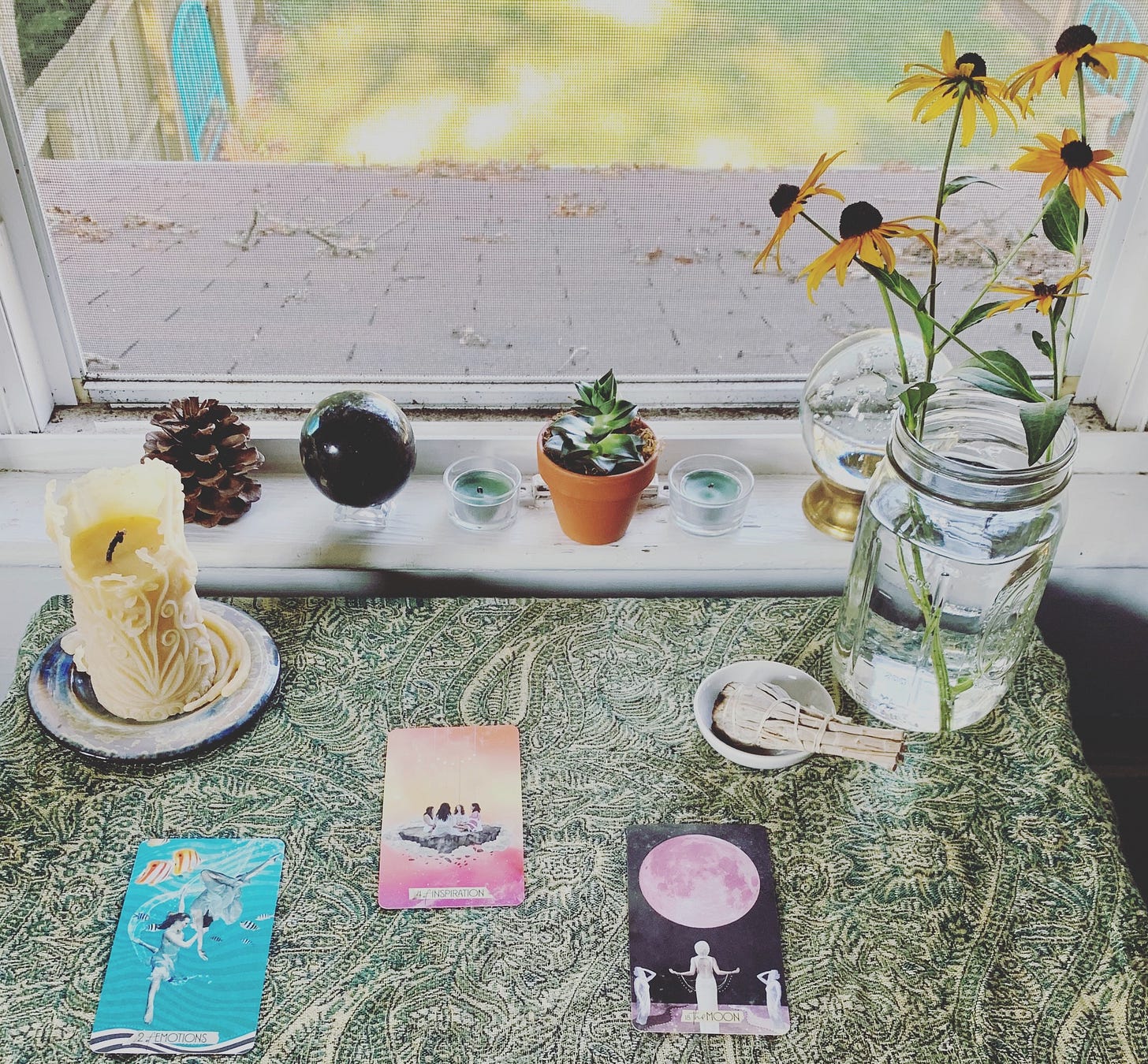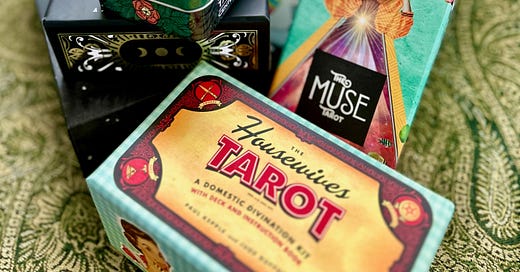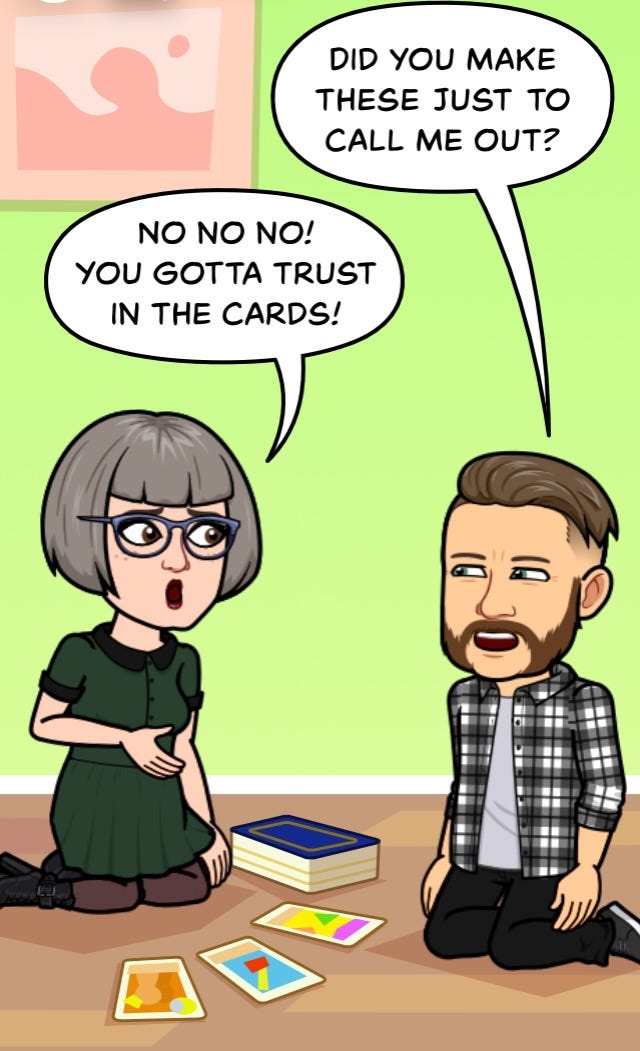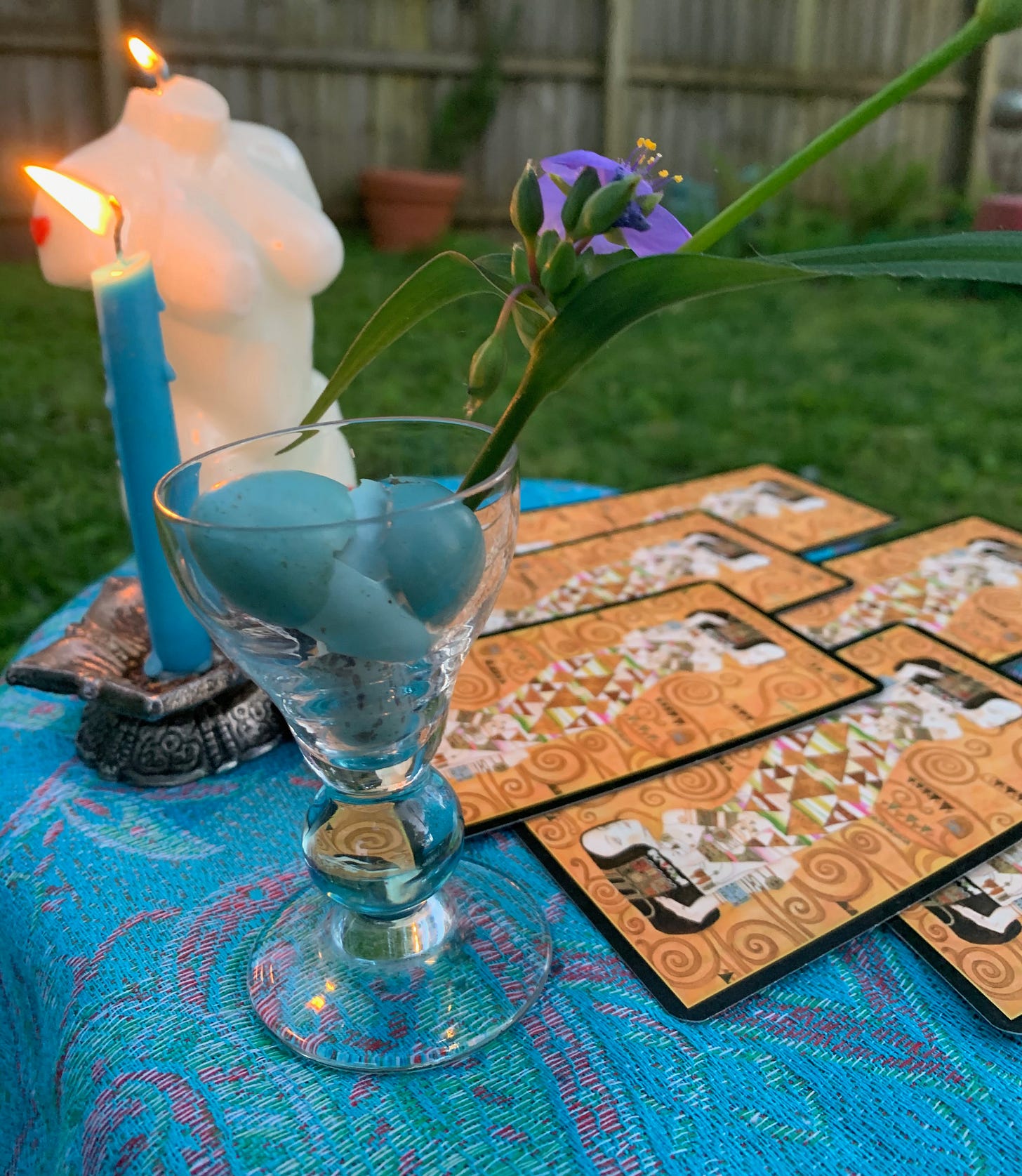I've read tarot cards and collected decks for almost 20 years. But I'm still somewhat careful who I share this with, because … people have a lot of misconceptions. I know, because I used to be one of them—but more about my story later.
At Grimrose Manor, we delight in the enigmatic and mystical—and few esoteric pursuits are as misrepresented in pop culture as tarot cards. So for the uninitiated but curious, we'd like to take this opportunity to illuminate this fascinating tool. First, we’ll cover some basics.
What is the tarot?
The tarot is a deck of 78 playing cards based on the Italian tarocchi game, with origins dating back to the 1400s. Similar to the regular playing cards we know today, each deck includes four suits, known as the "minor arcana," as well as 22 additional trump cards called the "major arcana." Evidence of people interpreting meaning from the tarot dates back to the mid-1700s.

Why are people afraid of it?
For starters, movies and television have done a particularly poor job of representing tarot cards and tarot readers. I could provide examples ad nauseam, but from the 1973 James Bond film Live & Let Die to 1995's coming of age flick Now and Then to 2022's Killing Eve, Hollywood always manages to get it wrong—often by drawing the Death card super dramatically leaving the audience to take a literal interpretation.
Do I have to be psychic to read tarot?
While some tarot readers may consider themselves to be psychic as well, it's not at all required to reap the benefits. All you need is curiosity and an interest in building your sense of intuition.
Psychologists such as Carl Jung posited that tarot cards are a tool for tapping into the subconscious, rather than an unknown external power. Instead of foretelling the future, in this view of the tarot, the reader uses the symbols and archetypes on each card to connect to a deeper, internal knowing.
Why do people consider the tarot "divination?”
Indulge me here as I share a bit of my own journey. About five years prior to getting my first deck, I declined the opportunity for a free tarot reading. I didn't even observe my friends' readings (although I didn't judge them for accepting). My fear may seem irrational, but in truth, it was indoctrinated: I was raised in a fundamentalist evangelical church at the same time my hometown experienced a serious Satanic Panic.
Long before conservative Christians forbade their children from reading Harry Potter, we were discouraged from celebrating Halloween, encouraged to burn rock-and-roll records because it was the devil's music, and told that playing Dungeons & Dragons would lead to suicide. (I wish I were kidding.)
Because I also grew up near Lily Dale, the world's largest Spiritualist community, we were told that the mediums who lived there and the thousands of visitors who flocked each year to speak to dead loved ones, were quite literally demon possessed. According to church teachings, any form of "divination"—or attempting to gain knowledge through supernatural means—was in essence circumventing one’s faith in God and opening a spiritual can of worms that could send you to a literal lake of fire to burn for eternity.
Unlearning this level of indoctrination is difficult, to say the least. Thanks to a process now known as "deconstruction," whereby I reexamined what I was taught and learned to trust my own experience of the world, today I can approach the mystical world with curiosity rather than fear.
I'm interested in learning more — do I need to receive my first deck as a gift?
While this is a commonly held belief (and I personally happened to), I think this perhaps stems less from superstition than a general encouragement to have a friend or guide who has more experience with the tarot and can answer your questions. Similarly, you might hear people spout edicts about how to store your cards, who should or should not touch them, and how to "clear” or “recharge” their energy, but again, these should be taken with a grain of salt.
Do I need to memorize the meanings of every card?
Not at all. Decks almost always come with booklets and especially when you’re learning, you’ll want to reference them as you learn to interpret. Two decades in, I’m familiar with them all but still consult my favorite websites or reference books.
Even when you know a card’s meaning, the nuances can change depending on their position (upright or reversed / upside down) and their relationship to other cards in the layout or “spread.” In other words, the more time you spend with them, the more you will learn.
How often should I do readings?
Tarot can be a daily ritual or a rare indulgence. Draw a card each morning to obtain a focus or receive guidance, use a spread during full moons to set intentions, or invite friends for an insightful reading session. I also recommend jotting down notes for special readings—to better retain the meanings and for future reference.

So what’s the point?
Personally, working with tarot cards on a regular basis is a way for me to pause and assess different aspects of my life. I use them to determine what area of my life needs my focus, evaluate my options, or figure out ways to approach a difficulty.
This is not to say that I don’t experience what Jung called “synchronicities,” or coincidences that seem meaningful—as if the cards know something. Pulling the same card repeatedly in readings for yourself is like the universe saying “you haven’t learned this lesson yet!” Whether you consider this wisdom to be coming from your inner guide, the universe, or the divine is up to you.
The more you access the cards, the easier it is for them to engage in a dialogue with your intuition, spark creativity, and offer solace when the path ahead feels unclear.
For more tarot goodness, you may also enjoy:










Thanks. I might be having a moment of synchronicity or serendipity, maybe both. I was raised in fundamentalist church, too. Tarot cards were of the devil and his demons. They went so far to say, people could be possessed by tv shows, demonic books or old clothes. Fast forward 30 years since I left that church and belief system, but over the last six months I've read a lot about tarot cards. I'm super curious about it. A couple of questions, what deck do you recommend, and can you learn on your own?
Thanks for this primer. I've been using oracle cards this past year, and I've found them to be very helpful for introspection and tuning into my intuition. I'm hoping to learn more about the tarot this year.